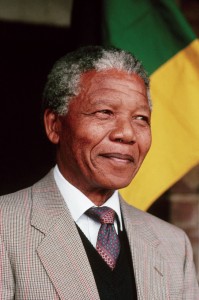Seven Leadership Styles

Alchemist
I’ve often thought of leadership as the ability to motivate people to work together toward a common goal. My definition is not far from Dwight Eisenhower’s quote: “Leadership is getting people to do something because they want to do it.”
Of course, there are different tactics to use in different situations. I study rhetoric – the art and science of persuasion – because I find it very helpful in convincing people that they want to do something. I also like to lay out goals and make them clear as possible. I’m not much of a yeller but I can understand (intellectually at least) how yelling might be a good leadership tactic in some situations – like an emergency.
I hadn’t thought much beyond that, so it was good to rediscover a 2005 Harvard Business Review article titled “Seven Transformations of Leadership”. The authors, David Rooke and William Torbert, identify seven “action logics” that can help us understand what kind of leader we already are.
I’ll summarize the seven here – using Rooke and Torbert’s terminology – partially because I think they’re important but also because I want to refer back to them in future posts.
Opportunists – “characterized by mistrust, egocentrism, and manipulativeness”, their goal is to win in any way possible. Only 5% of leaders are deemed to be opportunists (thankfully).
Diplomats – “seeks to please higher-level colleagues while avoiding conflict.” They rarely rock the boat and comprise about 12% of leaders.
Experts – “try to exercise control by perfecting their knowledge … watertight thinking is extremely important.” Experts comprise the largest single group of leaders, about 38%.
Achievers — “create a positive work environment and focus … on deliverables, the downside is that their style often inhibits thinking outside the box.” About 30% of leaders are achievers.
Individualists – often seen as “wild cards” with “unique and unconventional ways of operating”. Yet they also “contribute unique practical value” and “communicate well with people who have other action logics.” They make up about 10% of leaders.
Strategists – “focus on organizational constraints and perceptions, which they treat as discussable and transformable.” They are “highly effective change agents” but account for only 4% of leaders.
Alchemists – are able to “renew or reinvent themselves in historically significant ways.” They have “an extraordinary capacity to deal simultaneously with many situations at multiple levels.” Rooke and Torbert identify Nelson Mandela as an exemplar of the alchemist, which may help explain why only 1% of leaders fit the category.